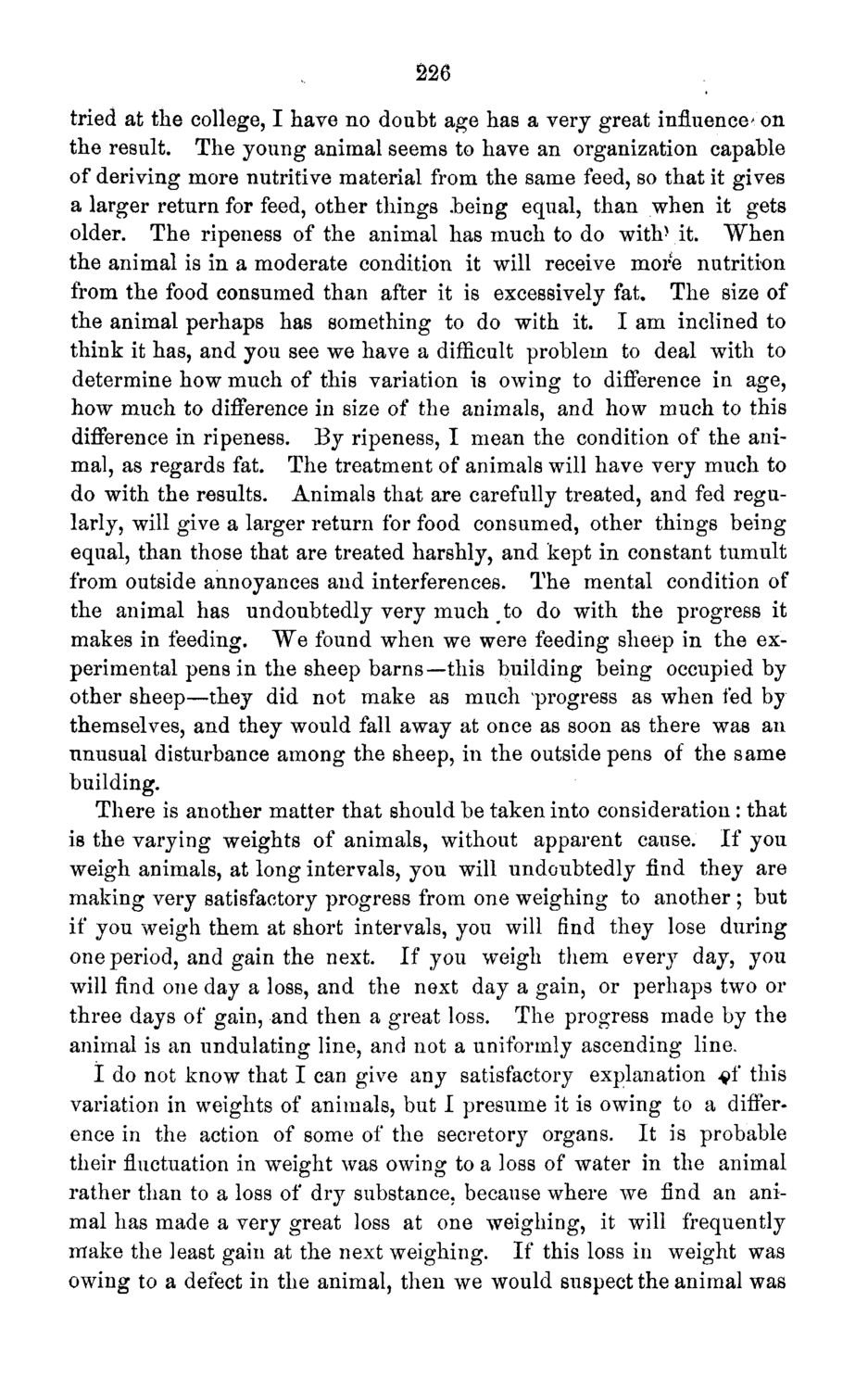| |
| |
Caption: Board of Trustees Minutes - 1871
This is a reduced-resolution page image for fast online browsing.

EXTRACTED TEXT FROM PAGE:
226 tried at the college, I have no doubt age has a very great influenccon the result. The young animal seems to have an organization capable of deriving more nutritive material from the same feed, so that it gives a larger return for feed, other things .being equal, than when it gets older. The ripeness of the animal has much to do with\it. "When the animal is in a moderate condition it will receive more nutrition from the food consumed than after it is excessively fat. The size of the animal perhaps has something to do with it. I am inclined to think it has, and you see we have a difficult problem to deal with to determine how much of this variation is owing to difference in age, how much to difference in size of the animals, and how much to this difference in ripeness. By ripeness, I mean the condition of the animal, as regards fat. The treatment of animals will have very much to do with the results. Animals that are carefully treated, and fed regularly, will give a larger return for food consumed, other things being equal, than those that are treated harshly, and kept in constant tumult from outside annoyances and interferences. The mental condition of the animal has undoubtedly very much to do with the progress it makes in feeding. We found when we were feeding sheep in the experimental pens in the sheep barns—this building being occupied by other sheep—they did not make as much progress as when fed by themselves, and they would fall away at once as soon as there was an unusual disturbance among the sheep, in the outside pens of the same building. There is another matter that should be taken into consideration: that is the varying weights of animals, without apparent cause. If you weigh animals, at long intervals, you will undoubtedly find they are making very satisfactory progress from one weighing to another ; but if you weigh them at short intervals, you will find they lose during one period, and gain the next. If you weigh them every day, you will find one day a loss, and the next day a gain, or perhaps two or three days of gain, and then a great loss. The progress made by the animal is an undulating line, and not a uniformly ascending line. I do not know that I can give any satisfactory explanation 4>f this variation in weights of animals, but I presume it is owing to a difference in the action of some of the secretory organs. It is probable their fluctuation in weight was owing to a loss of water in the animal rather than to a loss of dry substance, because where we find an animal has made a very great loss at one weighing, it will frequently make the least gain at the next weighing. If this loss in weight was owing to a defect in the animal, then we would suspect the animal was
| |